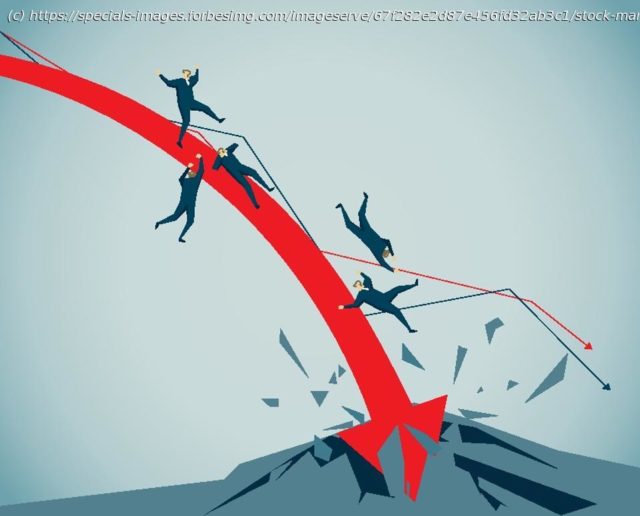When everything is in chaos, think clearly; fix the things that need fixing anyway; grab obvious opportunities; but also think entrepreneurially to make major gains.
President Trump, against the advice of almost every professional economist, announced substantial tariffs on almost every country in the world, thereby launching an economic war—a global trade war.
Whether your firm’s supply chain is being disrupted and demand for your products is falling, or your own your 401 (k) retirement fund is being shredded, or your household is struggling to make ends meet, you need to pay attention. There are 5 types of actions you should consider to have a chance of prevailing amid the inexorable chaos that is already engulfing the world.1. See Through Significant Disinformation
You should realize that you are not alone in struggling to understand what is going on. President Trump’s announcement on April 2 contained substantial disinformation. At the most basic level, the president seems only occasionally aware that the that a tariff is a tax on the country imposing it, thereby creating an economic burden on the citizens of that country.
It is not true, as he alleged on April 2 that the U.S. is “of a hollowed out country with empty factories, unemployed workers and stagnant wages.” The fact is that over the last several decades U.S. has outperformed all its competitors and is now the dominant world economy. As economist Fareed Zakaria notes:
The U.S. economy has doubled in size since 2008, while the Eurozone has stagnated.
US average wages are now roughly 40% greater than those of the other advanced economies, when it was only 20% greater in 1990.
Today, American personal incomes are about 150 percent higher than Japanese personal incomes, while in 1995, Japanese personal incomes were 50% higher than those in the U.S.
While U.S. manufacturing has declined in this century, owing principally to higher personal incomes, this has been more than compensated by the extraordinary growth of services through exporting software, movies, music, law, and banking. 2. Recognize The Risks Of A Trade War To Everyone
The last major trade war of the 1930s was accompanied by a 60% reduction in global trade. It was launched by President Herbert Hoover on June 17, 1930 with the passage of the Tariff Act, known as the Smoot–Hawley Tariff Act. It raised tariffs on over 20,000 imported goods in an effort to shield American industries from foreign competition. Most countries retaliated by raising their tariffs. Unemployment was 8% in 1930 when the Smoot–Hawley Act was passed but the new law failed to lower it. Unemployment jumped to 16% in 1931 and to 25% in 1932–1933. Overall, world trade decreased by two-thirds between 1929 and 1934 as the joint effect of the global trade war and limited money supply.






